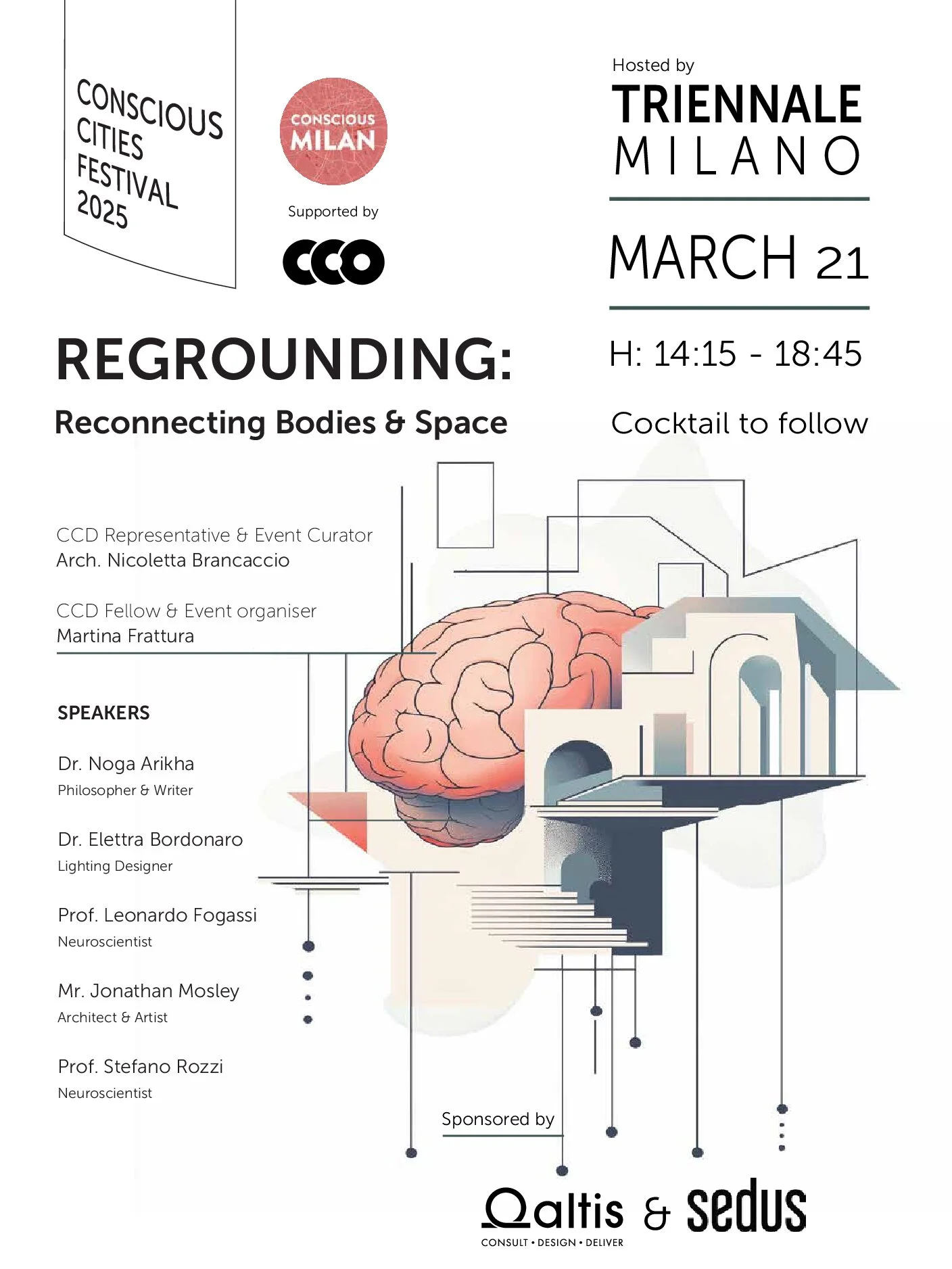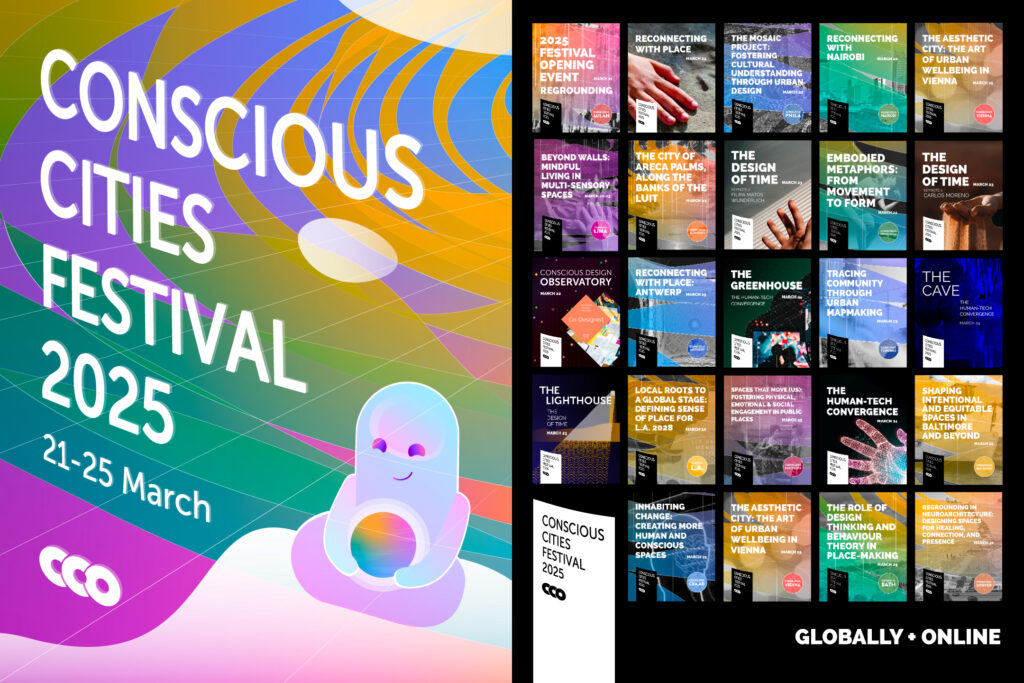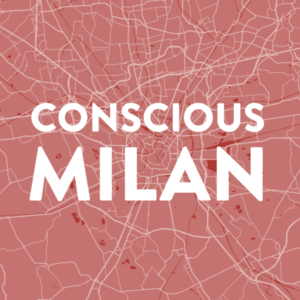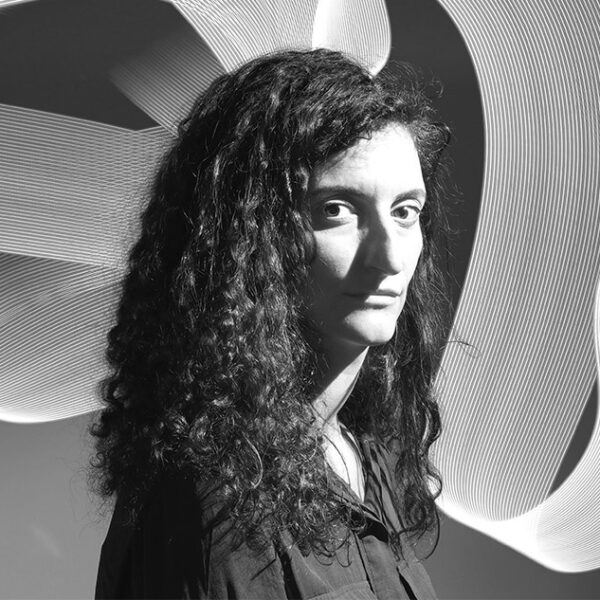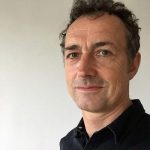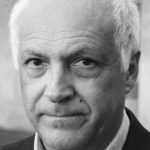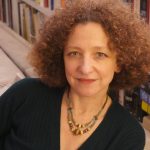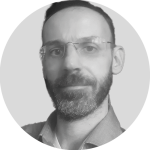The Conscious Cities Festival 2025 opens its doors in Milan on March 21, setting the stage for a transformative exploration of this year’s central theme: REGROUNDING. This global initiative, led by the Conscious Cities Movement, brings together architects, urbanists, scholars, and innovators to reimagine how our built environments support well-being, connection, and sustainability. In Milan, we will delve into the theme through three interconnected lenses: Which Body in Which Space, The Semantics of Space, and Conscious and Comfort.
Session Themes
1. Which Body in Which Space? Embodying the Scale of Architecture
This session invites us to consider the fundamental relationship between our bodies and the spaces we inhabit. Two inspiring keynote speakers will explore:
- Bodies in Movement: How architecture shapes, and is shaped by, the dynamism of the human body.
- Performing in Space: A reflection on how we enact and express our identities and roles through our spatial interactions.
Together, these talks aim to highlight the embodied and performative aspects of architecture, urging designers to create environments that respect and respond to human physicality.
2. The Semantics of Space
Our second theme investigates the narratives and meanings embedded in our surroundings. This session unfolds in two interactive roundtables:
- Rebuilding Connections to Nature: Experts will discuss how playful, diverse, and joyful design strategies can deepen our bond with the natural world.
- Evoking: A discussion about material and lights able to recreate natural environment.
- Healing Spaces: A focus on the ethical imperative of designing environments that heal and “do no harm,” addressing both physical and psychological well-being in architecture through the use of materials which respect the environment, improving the quality and the health of it.
Through these discussions, we will explore how the semantics of space can foster harmony and resilience, bridging the human and natural realms.
3. Consciously defining Comfort: Redefining What We Seek
Closing the day, this session takes a provocative approach, centering on the question: “Is it really luxury we are looking for?” Through a series of workshops and presentations, participants will reflect on the growing need for interpersonal awareness in design. Topics include:
- Hands on workshop (small experiments or round table workshop)
- Reconnecting with movement (possible laboratory related to dance)
- TBD
Closing Reflections
The conference will conclude with a profound philosophical wrap-up, synthesizing the day’s discussions and presenting potential directions for the future of architecture and urbanism. This perspective will challenge attendees to consider the ethical, emotional, and ecological impacts of their work as they move forward.
The Conscious Cities Festival 2025 in Milan is more than an event—it is a call to action. It is an invitation to reimagine our environments as spaces that ground us, connect us, and foster a deeper sense of community and care. Together, let’s chart a path toward more conscious, inclusive, and responsive cities.

